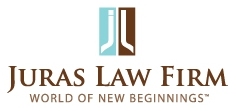Category: Canadian investors in Phoenix, E-2 attorney, E-2 visa, Immigration attorney Phoenix, Immigration lawyer Arizona, Investment visa, Investor visa, Investor Visa Attorney, visa for Canadians
Tags: E-2 investor visa, E-2 Investor Visa Attorney, Immigration attorney in Phoenix, Immigration Lawyer in Phoenix, Immigration Lawyers Phoenix
The E-2 investor visa provides an excellent opportunity for foreign nationals from countries that have treaties of commerce and navigation with the U.S. to come to the U.S. to develop and manage the operations of a business. A frequent question of foreign investors considering applying for an E-2 investor visa is: ‘What is considered a “substantial” investment?” Our immigration lawyers can tell you that, unlike the minimum investment requirement for an EB-5 investor visa (“green card”), which is $1 million or $500,000 in targeted employment areas, there is no set dollar amount that has to be invested in order to be considered “substantial” investment for E-2 visa purposes. A substantial amount of capital for E-2 purposes constitutes an amount that is substantial in the proportionality sense.
The proportionality test compares the total amount invested in the enterprise with the cost of either purchasing an established enterprise or creating a viable new enterprise. The lower the cost of the business, the higher the percentage of investment is required. On the other hand, a highly expensive business would require a lower percentage of qualifying investment. Thus, investments of 100 percent or a higher percentage would normally automatically qualify for a small business of $100,000 or less. On the other hand, an investment of $10 million in a $100 million business would likely qualify, based on the sheer magnitude of the investment itself.
The “substantial” investment has to be large enough to lead to the successful operation of the E-2 enterprise and must be more than marginal (must have the capacity to generate more than enough income to provide a minimal living for the investor and his family). What constitutes a substantial investment is different for different industries. If an investor wants to start a manufacturing business or any other capital-intense business, $100,000 will not constitute a substantial investment. However, $100,000 or a lower amount may be sufficient for service businesses. We have helped numerous foreign investors to get E-2 investor visas for a $100,000 investment in service businesses. We recently obtained an E-2 visa for a Canadian investor who purchased an existing service business in Arizona for $70,000. The U.S. Citizenship and Immigration Service has approved E-2 visas even for smaller investments. Our most recent case was an E-2 visa for a Canadian investor who purchased an Arizona retail business for $250,000.
If you are looking to invest in a business or enterprise in Arizona or anywhere throughout the United States, call the Juras Law Firm, PLC in Scottsdale, AZ to speak with an experienced E-2 visa attorney. Call our office at (480) 425-2009 to schedule an appointment now! We understand that the visa application process is complex; an experienced Arizona E-2 visa attorney is here to answer your questions.
